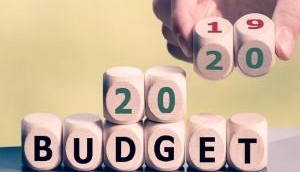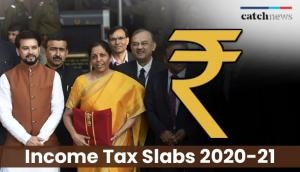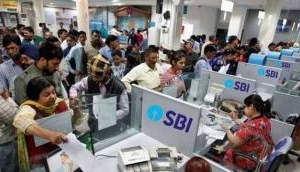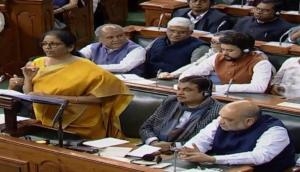
Budget 2017-18 presented by Finance Minister Arun Jaitley had no tax bounty - as expected by many to give a boost to consumption. Rather, it gave only marginal relief to the needy. In the finance minister's own words, 'it has fulfilled aspirations of the honest'.
However, the biggest disappointment in the tax proposals has come for large corporate tax payers and sectors that were expecting a cut in excise duties to arrest the slowdown in sales.
On the contrary, the budget has given relief to only small companies that have an annual turnover of Rs 50 crore.
"Among the changes that were expected was the rate adjustment, both in service tax and excise. While the change in excise was expected in order to boost consumption through rate reduction, the change in the service tax, by way of a small hike, was expected in the overall direction of the Goods and Services Tax (GST) proposed rate at 18%. Merging the cess with the rate would have been conducive to move towards the GST," partner Deloitte Haskins & Sells Prashant Deshpande said.
Deshpande added that the finance minister has missed an opportunity to introduce a move towards encouraging voluntary compliance or to settle the disputes in the present regime so that they are not carried over to the GST.
Matter of collections
The direct tax collections are estimated at Rs 9,80,000 crore in 2017-18 with a growth of 15.6% over 2016-17. The direct taxes are estimated to constitute 51.3% of the gross tax revenues in 2017-18.
The indirect taxes, which have been particularly buoyant on account of growth in excise, service tax collections in 2016-17, are estimated at Rs 9,26,900 crore in 2017-18 with a growth of 8.8% over 2016-17.
On the other hand, bringing down tax rates for small companies has been cheered by many.
"The Medium and Small Enterprises which constitute more than 96% of the companies filing their tax returns have been provided a huge corporate tax rate cut. This is a major relief as the companies in the manufacturing and the service sector are facing profit pressure. It is also likely to improve the cash flow," founder of RSM Consulting Suresh Surana said.
Expressing similar views, Bimal Tanna, leader of industrial products with PWC, said that while a Minimum Alternate Tax (MAT) rate cut and incentives for Capital Expenditure (capex) would have certainly boosted sentiments in the manufacturing sector in a big way, reduction in the income tax rate for MSME companies is quite encouraging.
The highs & the lows
Corporate captains also seemed disappointed over no change in MAT.
"With profit-linked incentives being phased out, there was a requirement to phase out the MAT. It appears that MAT may continue for another few years. It has now been proposed to increase the carry-forward of MAT credit to 15 years (instead of the existing 10 years)," partner with PwC Abhishek Goenka said.
The biggest beneficiary of the new budget has been the salaried income individuals with earnings below Rs 5 lakh. All individuals in the existing bracket of Rs 2.5 lakh to Rs 5 lakh will save a maximum Rs 12,500 on their tax outgo with reduction in tax rate to 5% from 10%.
Simultaneously, the maximum amount of rebate is proposed to be reduced from existing Rs 5,000 to Rs 2,500. The budget also proposed to provide that this rebate shall be available to only resident individuals whose total income is up to Rs. 3,50,000.
The budget also provided for 10% surcharge being introduced for individuals & Hindu Undivided Family (HUFs) with income between Rs 50 lakhs to Rs 1 crore resulting in effective tax rate of 33.99%.
The effective tax rate in such cases shall increase by approximately 3%.
Edited by Jhinuk Sen
First published: 14 February 2017, 6:58 IST






![BJP's Kapil Mishra recreates Shankar Mahadevan’s ‘Breathless’ song to highlight Delhi pollution [WATCH] BJP's Kapil Mishra recreates Shankar Mahadevan’s ‘Breathless’ song to highlight Delhi pollution [WATCH]](https://images.catchnews.com/upload/2022/11/03/kapil-mishra_240884_300x172.png)

![Anupam Kher shares pictures of his toned body on 67th birthday [MUST SEE] Anupam Kher shares pictures of his toned body on 67th birthday [MUST SEE]](https://images.catchnews.com/upload/2022/03/07/Anupam_kher_231145_300x172.jpg)



_in_Assams_Dibrugarh_(Photo_257977_1600x1200.jpg)


